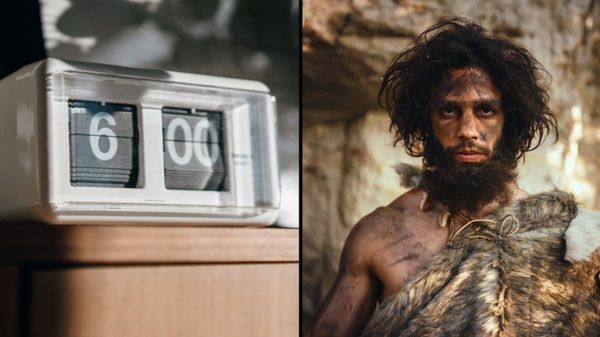
Do you find yourself naturally waking up bright and early in the morning, ready to take on the day? Well, according to a recent study, it might be in your genes. Researchers have discovered that people who are early risers may have inherited this trait from their Neanderthal ancestors.
Neanderthals, who lived hundreds of thousands of years ago, may have died out, but their DNA still lingers on. A study published in the journal Genome Biology and Evolution examined the genetic makeup of Neanderthals who lived in Eurasia for thousands of years before their extinction around 40,000 years ago.
The findings suggest that there was likely interbreeding between Neanderthals and our ancient human ancestors, resulting in the passing on of genes from both groups to future generations. This means that some evolutionary adaptations made by Neanderthals have been inherited by humans with Neanderthal relatives in their distant past.
The study focused on 246 circadian genes, which are responsible for regulating our internal ‘body clock’. These genes control our sleep-wake cycle and influence when we feel tired or alert. Interestingly, the researchers discovered significant genetic differences in the circadian systems of Neanderthals compared to modern humans.

One notable difference is the preference for being a ‘morning person’. The researchers suggest that individuals who are early risers may have inherited this trait from their Neanderthal ancestors. It is believed that the ability to align circadian rhythms with changing seasonal light patterns, which is advantageous for those living at higher latitudes, may have been passed down through generations.
Lead author John Capra from the University of California in San Francisco explained, “By studying ancient DNA, modern genetic studies, and utilizing artificial intelligence, we found that many bits of Neanderthal DNA have effects on the control of circadian genes in modern humans. These effects tend to increase the propensity to be a morning person.”
Professor Mark Maslin from University College London, who was not involved in the study, commented, “Now we have genetic evidence that some of us really are morning people.”
So, the next time you find yourself waking up with the birds, take a moment to thank your Neanderthal ancestors for passing on their early-riser genes. Embrace your inner morning person and enjoy the quiet beauty of the dawn.



